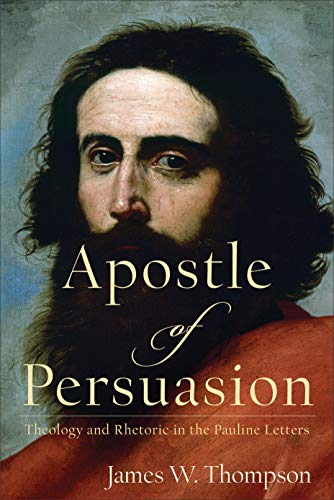Q. Your treatment of the exordiums in these various letters is very helpful. It is the place where Paul is establishing rapport with his audience, sometimes with laudatory words that are later followed by a strong critique— for example in 1 Cor. the exordium praises the audience in regard to their many spiritual gifts, but then Paul goes on to strongly rebuke the abusive way they have used the gifts. My students call the exordium ‘the sucking up’ to make the audience favorably disposed to listen to what follows including the strong exhortations. Is this how you would view Paul’s exordiums, particularly in letters that are mainly focused on problem solving?
A. Yes, I place great importance on the thanksgivings as the exordium of Paul’s letters. Not only do they make the audience favorably disposed, but they introduce the topic to be discussed, as your example of thanksgiving for the Corinthians’ spiritual gifts indicates. As I have mentioned earlier, they also focus on moral formation (“that you may be blameless”) in almost all of the letters.
Q. One of the most helpful aspects of your book for my students is that you point them to some of the German literature which in recent years has increasingly come to grips with the rhetorical analysis of Paul’s letters. I was giving a lecture in 1996 at Tubingen on the rhetoric of 1 Corinthians, and the classics faculty as well as the theological faculty attended. Otto Betz, the oldest scholar attending remarked— do we have to go back to the work of Weiss, early Bultmann, and others to recover the rhetorical thrust of Paul’s letters? He was remembering the teaching he got in the 30s. The classics scholars were all nodding their heads and saying the rhetorical analysis of Paul’s letters should never have been neglected, but some of the younger members of the theological faculty had not been trained that way and were resistant but rather in form etc. criticism. Things have changed in Deutschland since then. How would you assess the most helpful aspects of the German analysis of Paul’s rhetoric by Fenske and others in recent years? Sometime in the late 1990s, I gave a paper on Paul’s argument from pathos to the English colloquium at Tübingen chaired by Otto Betz. At the time, he expressed appreciation for the rhetorical approach, but said that this mode of analysis had not caught on in Germany. I heard quite a few lectures from the theological faculty when I lived in Tübingen, but I heard none on the rhetorical approach.
A. I have done only limited research on rhetoric in German scholarship. Hans Hübner has written several articles in which he applies rhetorical theory to the letters. I note that W. Schrage’s four volume commentary on 1 Corinthians engages the conversation on rhetoric. Classicist Joachim Classen has written several articles, in which he maintains that rhetorical theory is useful within limits, but he sharply distinguishes between letters and speeches. I think we will be seeing commentaries use the method increasingly.













